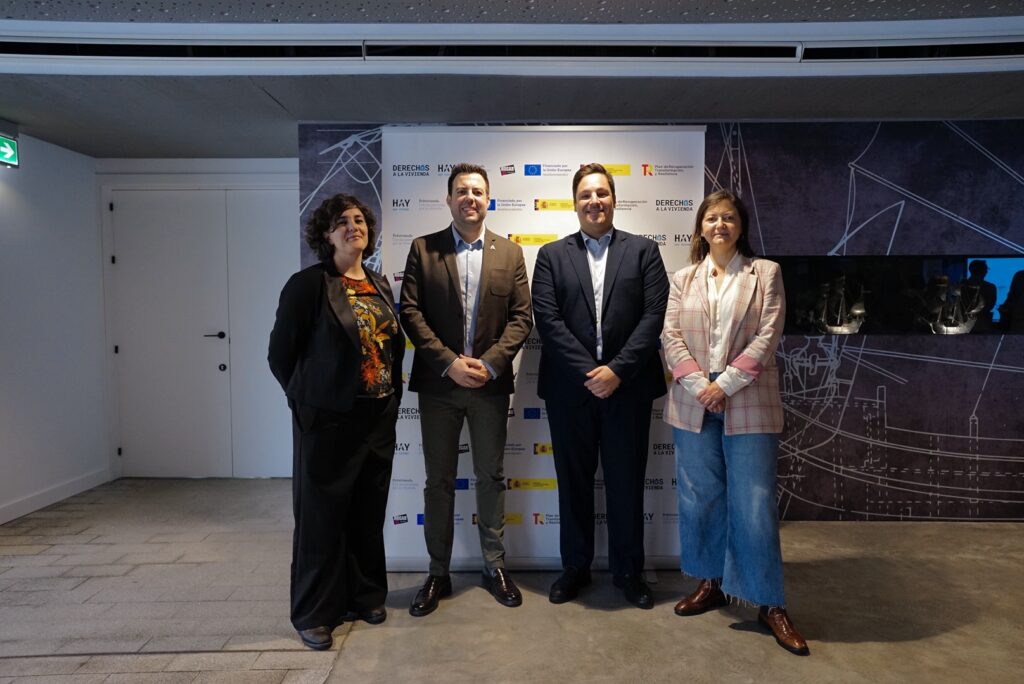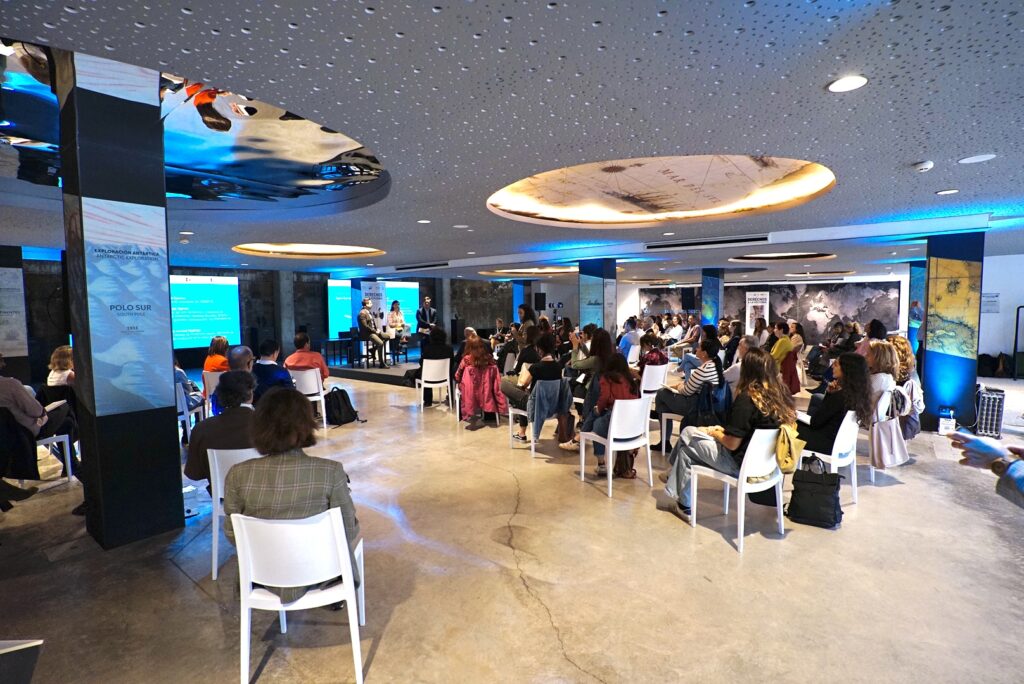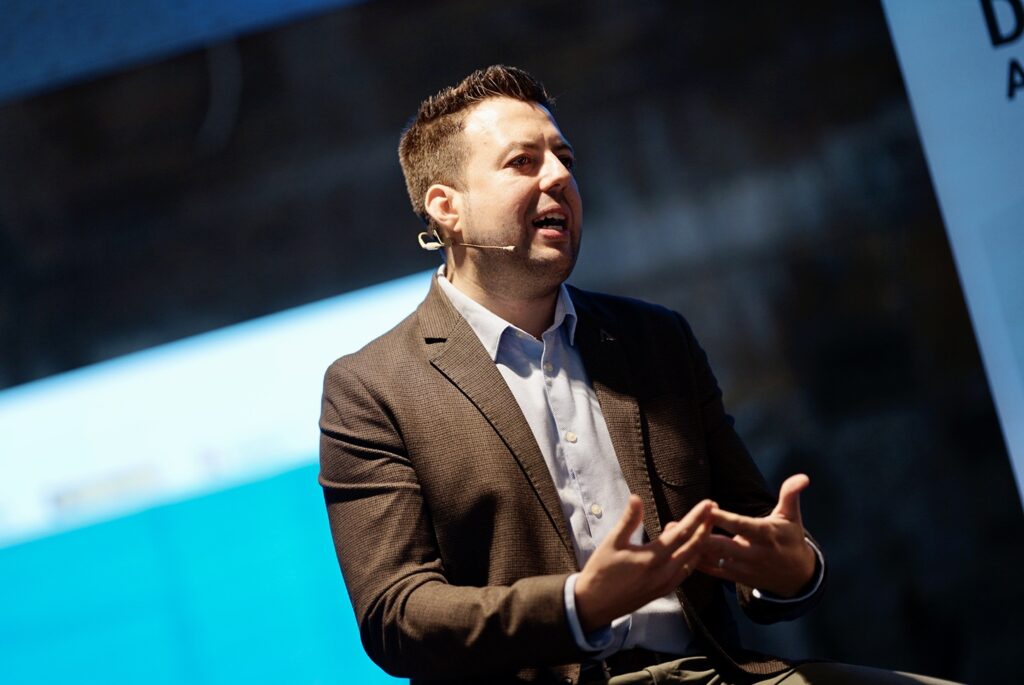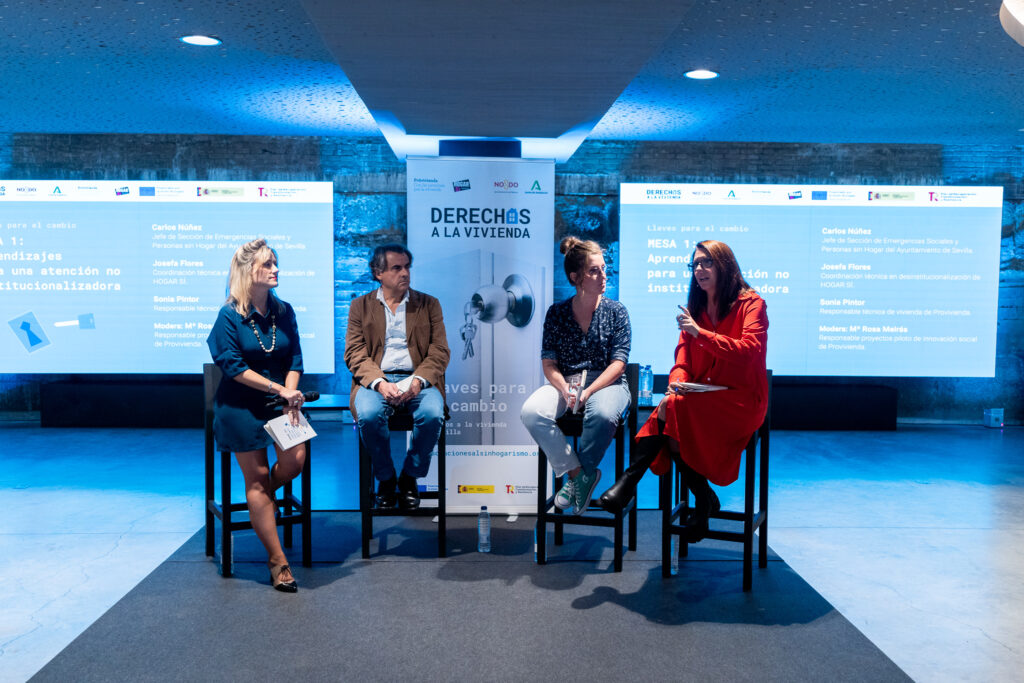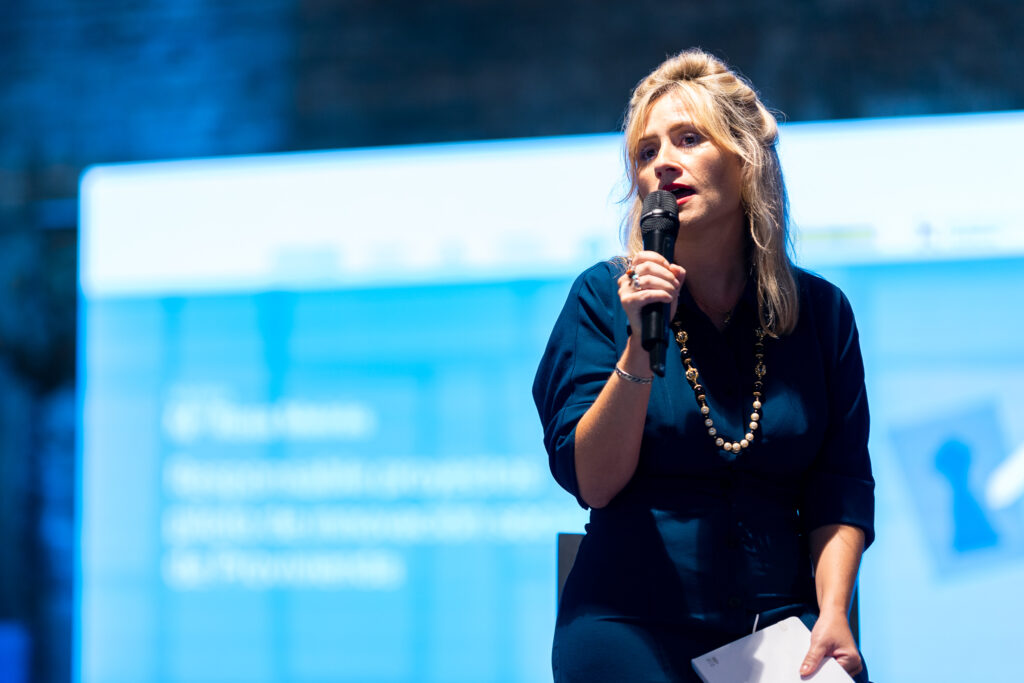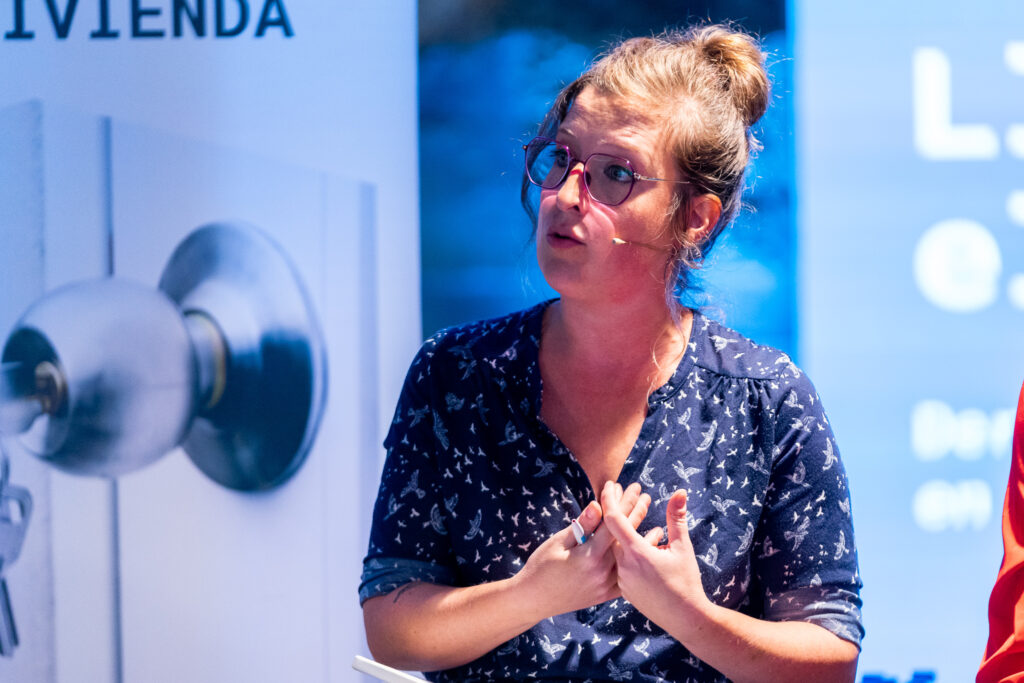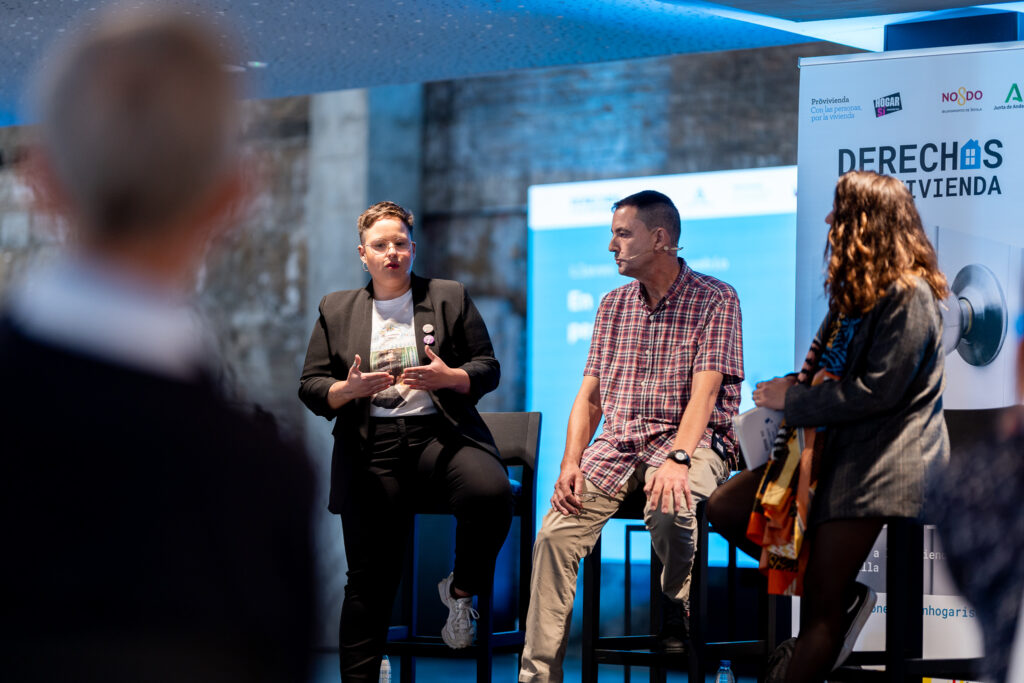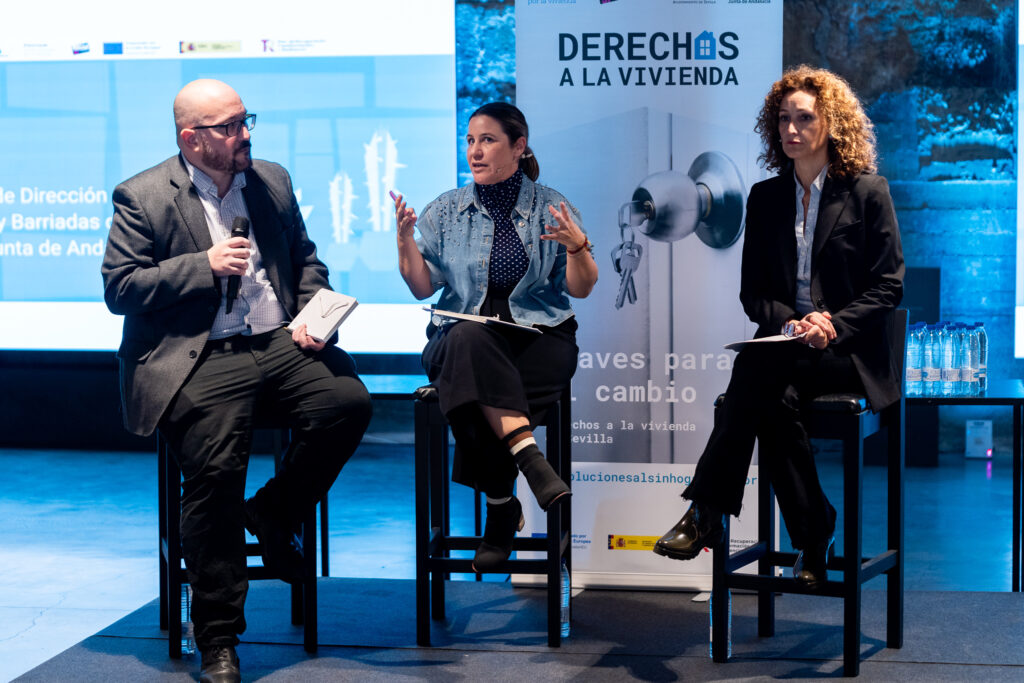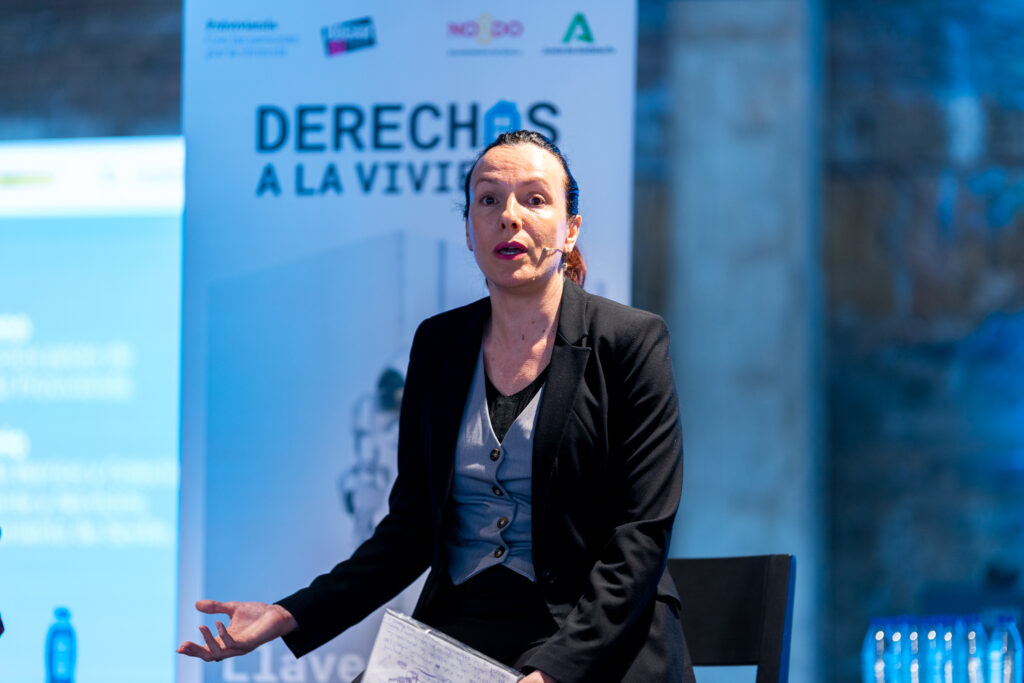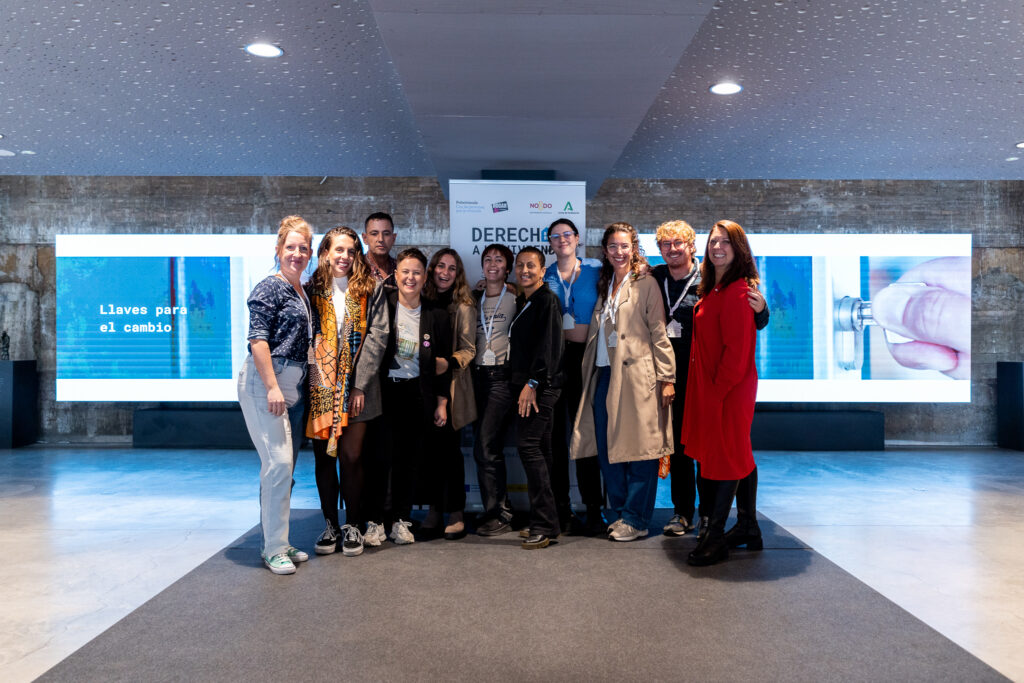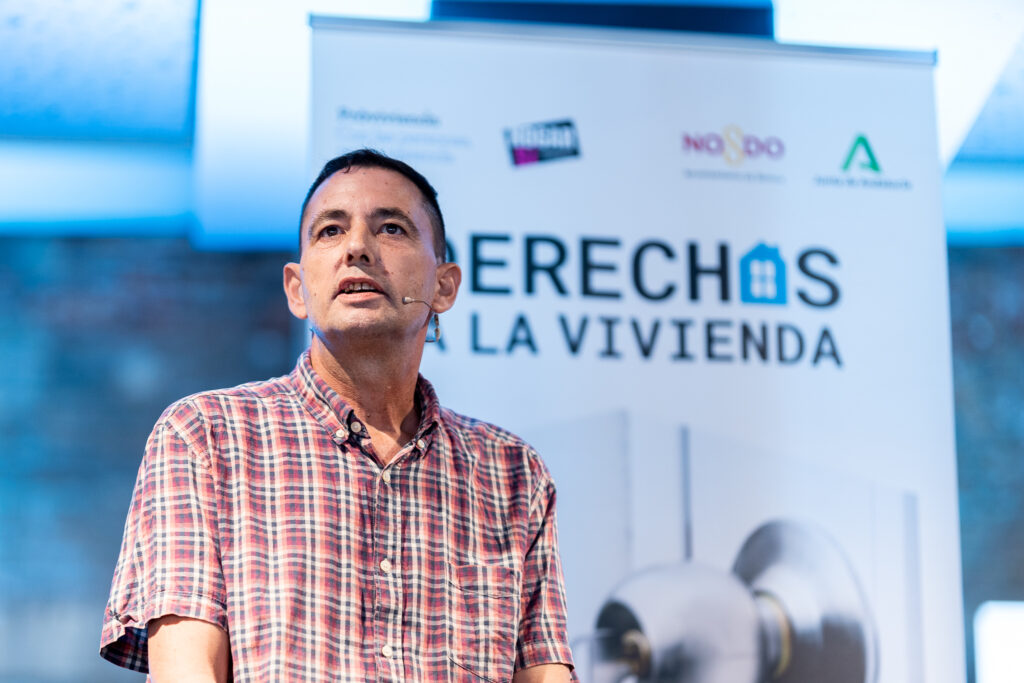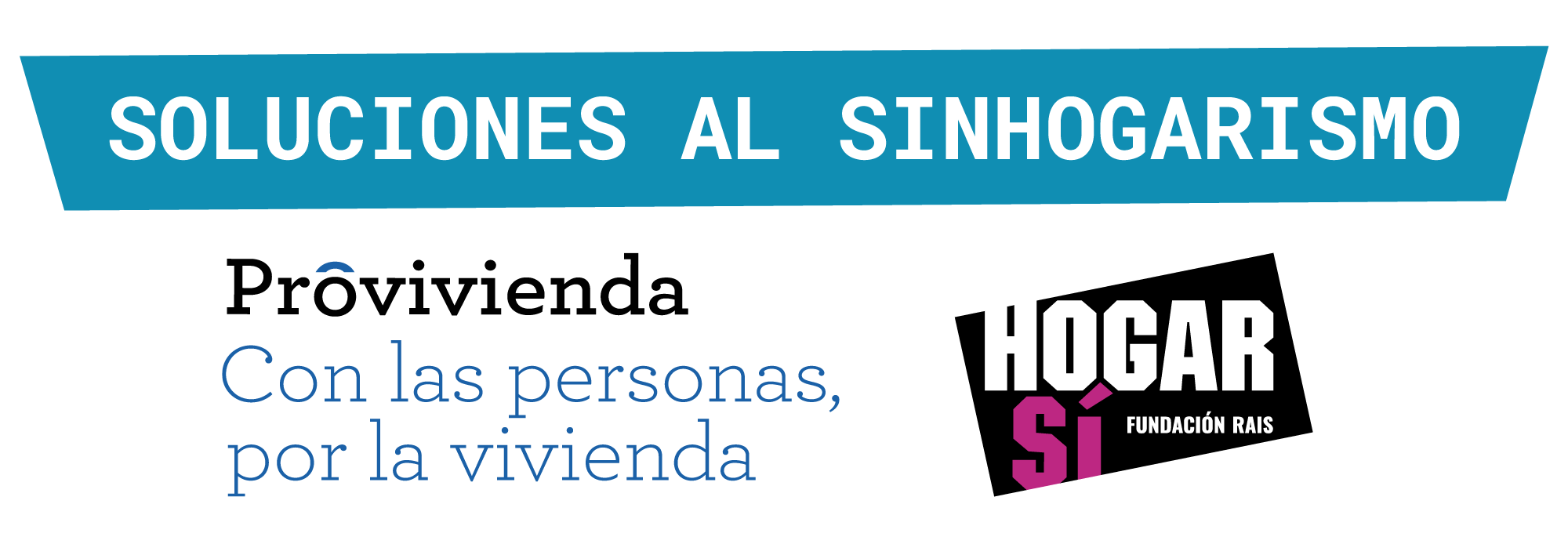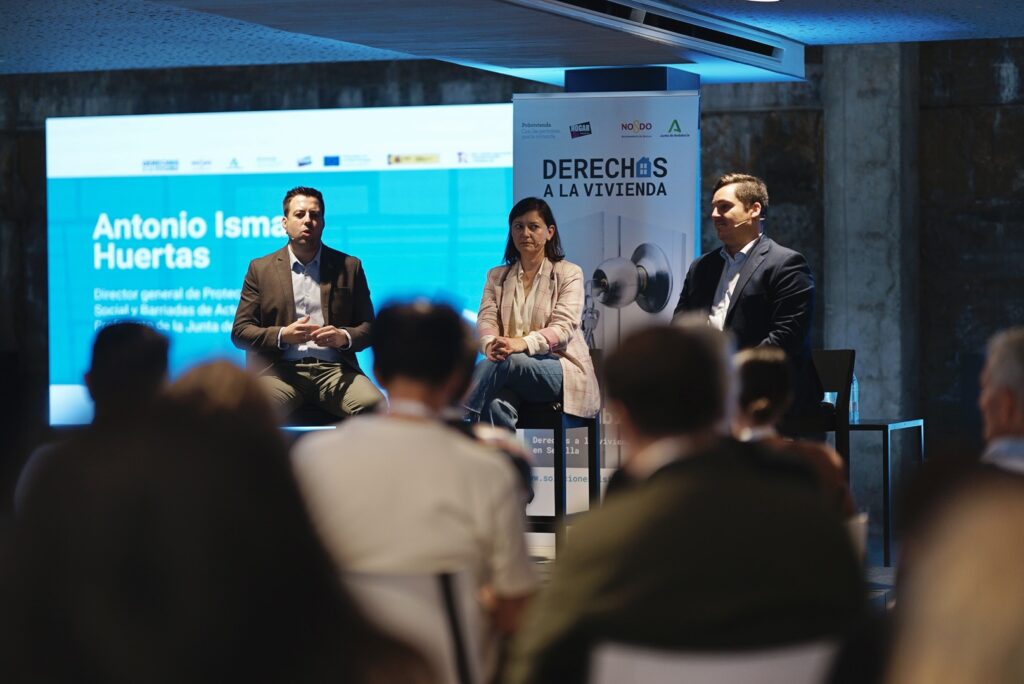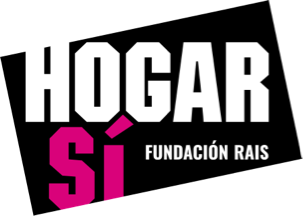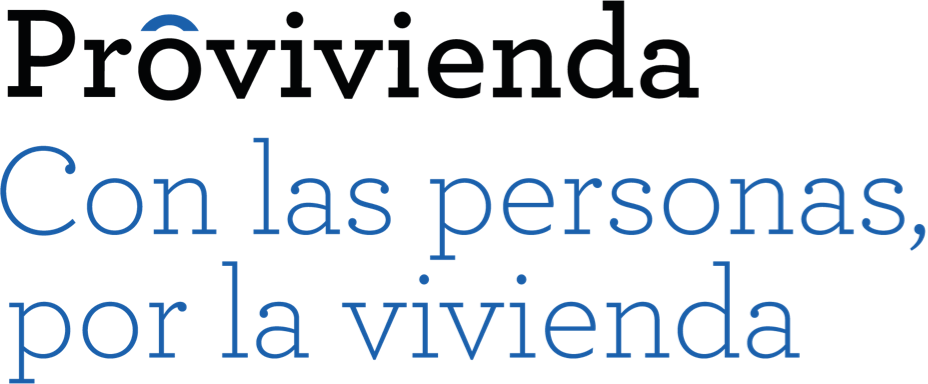Provivienda and HOGAR SÍ have presented this morning the conference "Keys for Change: Housing Rights in Seville", with the collaboration of the Junta de Andalucía and the City Council of Seville.
The event took place on the occasion of the presentation of the learning and knowledge generated through the pilot project of social innovation "Housing Rights", which has been developed since 2022 in the Andalusian capital, thanks to the financing of the Next Generation EU funds through the Plan for Recovery, Transformation and Resilience of the Ministry of Social Rights, Consumption and Agenda 2030.
Together with the participation of twelve regional and local public administrations, the project has sought to promote deinstitutionalization processes to transform the homelessness care system in eight locations: Avilés, Barcelona, Cartagena, Gijón, Madrid, Murcia and Seville; and on the island of Mallorca.
The meeting was welcomed by Antonio Ismael Huertas, Director General of Social Protection and Neighborhoods of Preferential Action of the Junta de Andalucía, who stressed the Andalusian Government's commitment to address the reality of homelessness. "It is not only about establishing networks so that homeless people can achieve stable housing, but also accompanied by personalized itineraries of socio-labor insertion so that the person can develop their own life project," he explained.
For his part, José Luis García, Delegate of the Area of Neighborhoods and Preferential Attention Collectives, Social Rights, Employment, Family, Equality and Associations of the Seville City Council, who was also at the opening, pointed out that "deinstitutionalization and early prevention not only represent a more humane approach, but also a more efficient approach to action measures with homelessness". In this sense, Garcia has indicated that "when we prevent a person from becoming homeless, we reduce the burden on emergency systems, hospitals and mental health centers, among others. In addition, it promotes greater dignity and autonomy for people, allowing them to better integrate into society".
In this line, he stressed that "we will allocate a budget of 300,000 euros to create an early care service for people in a situation of homelessness ". In addition, Garcia has argued that this innovative line of intervention "joins different programs of action of the City Council to provide adequate care and develop spaces for dialogue with social organizations, such as the case of the tables, strategic and technical homeless, spaces that allow us to develop a coordinated and comprehensive work to improve care and coordinate resources for homelessness in the city.
In this regard, the mayor recalled that "from the City Council we will spend 19 million in the Municipal Unit of Social Emergencies. An ambitious economic endowment to have new equipment, increased staff and social intervention teams. In addition, we will strengthen our apartment programs and implement two Centers for Resilient People, with funding from the Junta de Andalucía".
During the day, the main results and lessons learned from the project were presented by Maribel Ramos, deputy director of HOGAR SÍ. In addition, there were three round tables with the participation of representatives of the Andalusian Regional Government and the City Council of Seville, specialists in the field of HOGAR SÍ and Provivienda, as well as Francisco Fernández, an expert with experience who participated in the project.
Main results in Seville
A total of 100 people have participated in "Housing Rights" in Seville. The project, in addition to a residential solution, has offered homeless people the opportunity to work on their life project, access public and community services and have social support and professional accompaniment.
51% of the people who were part of the deinstitutionalization line, those who resided in institutions of the traditional network of care for homelessness, have left the project autonomously. While 62.7% of the people in the early care line, those who have been homeless for less than 6 months, have left the project independently. These data show that a rapid response obtains better results.
Although the final evaluation of the project at the national level will be presented on December 3 and 4 in Madrid, some of the results of the project have already been shared in the Andalusian capital, such as the fact thathaving personalized and flexible support led by the individual is a fundamental tool for dealing with homelessness.
Another fundamental learning has been to see how the power of choice empowers people and to demonstrate that they all have the capacity to freely choose their own path. The important thing is that they recover their life project and leave the system of homelessness, understanding it as a temporary situation.
Finally, the main impact of the program at the institutional level has been to raise awareness of the limitation of the system to prevent chronification. In fact, 69.7% of participants from administrations affirm that their institution has changed its view on homelessness and 76.7% believe that management is more interested in this type of solutions.
Provivienda and HOGAR SÍ have been developing the Housing First model in Spain since 2017, and both organizations work in alliance to ensure thatdecent and adequate housing is the starting point for the recovery of the rights of peopleexperiencing homelessness.
For the organizations, projects such as "Housing Rights" show that when resources are mobilized and there is a will to innovate, great results can be achieved, and they encourage public administrations to convert these lessons learned into public policies that are consolidated within the portfolio of services offered by the homelessness care system.
